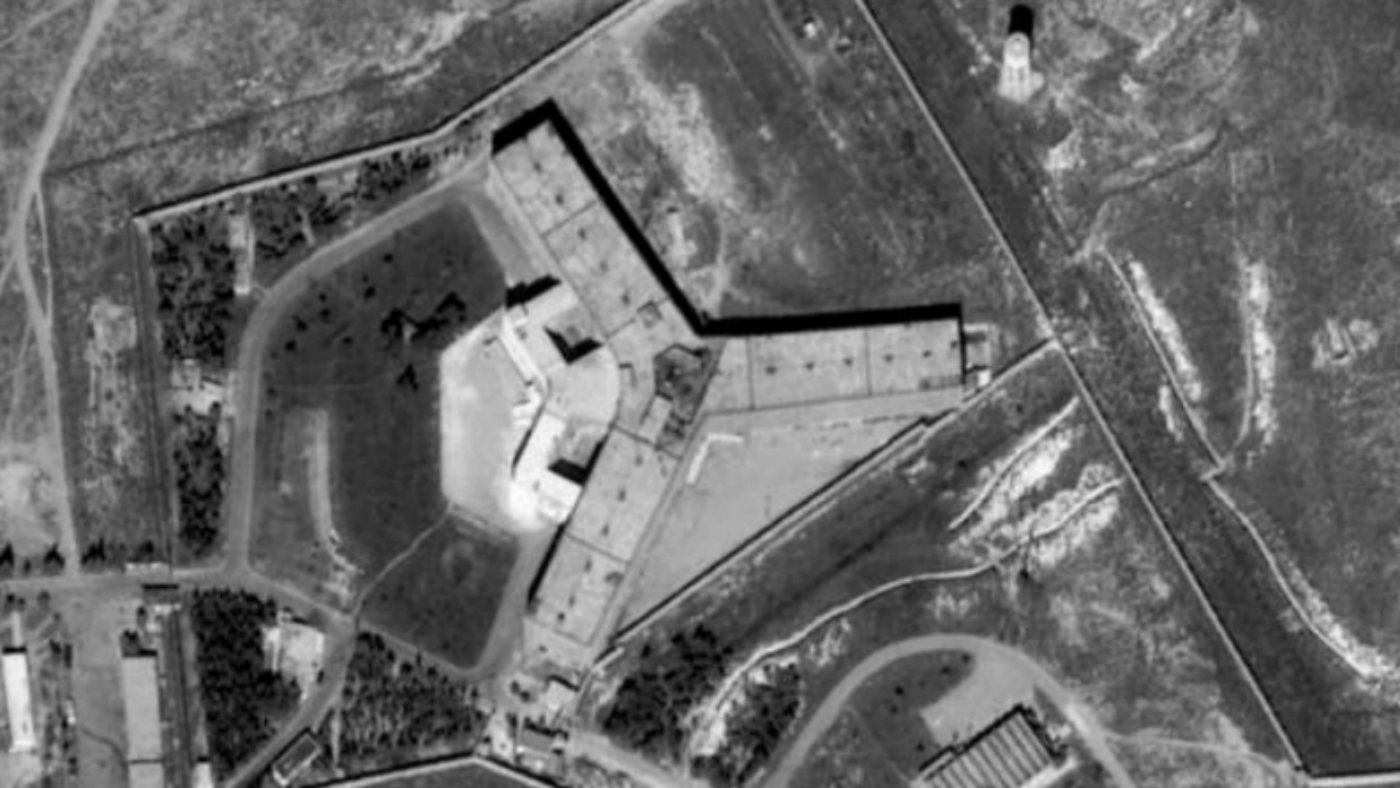Syria 'built crematorium to hide killings', says US
State Department claims President Bashar al-Assad is covering up thousands of atrocities at military prison

A free daily email with the biggest news stories of the day – and the best features from TheWeek.com
You are now subscribed
Your newsletter sign-up was successful
Syria has built a crematorium at a prison to dispose of the remains of murdered prisoners, the US State Department claimed yesterday.
Stuart Jones, acting assistant secretary for Near Eastern Affairs, showed journalists a series of aerial photographs he said indicted the presence of a crematorium at the Sednaya military prison on the outskirts of the capital Damascus, Reuters reports.
US officials believe it has been used to dispose of the bodies of thousands of inmates.
The Week
Escape your echo chamber. Get the facts behind the news, plus analysis from multiple perspectives.

Sign up for The Week's Free Newsletters
From our morning news briefing to a weekly Good News Newsletter, get the best of The Week delivered directly to your inbox.
From our morning news briefing to a weekly Good News Newsletter, get the best of The Week delivered directly to your inbox.
A report from Amnesty International this year claimed up to 50 people were hanged at the prison each week and between 5,000 and 13,000 had been executed since the start of the civil war six years ago.
Jones added: "Credible sources have believed that many of the bodies have been disposed in mass graves."
Al-Jazeera reports the photos show snow melting on the roof of one building and not others, indicating a significant heat source.
Jones also called on the governments of Iran and Russia, both of whom support Syrian President Bashar al-Assad, to use their influence to stop the alleged atrocities.
A free daily email with the biggest news stories of the day – and the best features from TheWeek.com
"We are appalled by the atrocities taking place in Syria [with the] seemingly unconditional support of Russia", he said, adding that Moscow had "aided or passively looked away" while the Syrian government acted.
"The regime must stop all attacks on civilian and opposition forces and Russia must bear responsibility to ensure regime compliance," he said.
The photos are understood to date back to 2015. It is not clear why the US State Department waited to reveal their findings.
Syria's civil war is now in its seventh year and has claimed around half a million lives and displaced many millions more.
-
 How the FCC’s ‘equal time’ rule works
How the FCC’s ‘equal time’ rule worksIn the Spotlight The law is at the heart of the Colbert-CBS conflict
-
 What is the endgame in the DHS shutdown?
What is the endgame in the DHS shutdown?Today’s Big Question Democrats want to rein in ICE’s immigration crackdown
-
 ‘Poor time management isn’t just an inconvenience’
‘Poor time management isn’t just an inconvenience’Instant Opinion Opinion, comment and editorials of the day
-
 Will increasing tensions with Iran boil over into war?
Will increasing tensions with Iran boil over into war?Today’s Big Question President Donald Trump has recently been threatening the country
-
 Epstein files topple law CEO, roil UK government
Epstein files topple law CEO, roil UK governmentSpeed Read Peter Mandelson, Britain’s former ambassador to the US, is caught up in the scandal
-
 Iran and US prepare to meet after skirmishes
Iran and US prepare to meet after skirmishesSpeed Read The incident comes amid heightened tensions in the Middle East
-
 Which way will Trump go on Iran?
Which way will Trump go on Iran?Today’s Big Question Diplomatic talks set to be held in Turkey on Friday, but failure to reach an agreement could have ‘terrible’ global ramifications
-
 Syria’s Kurds: abandoned by their US ally
Syria’s Kurds: abandoned by their US allyTalking Point Ahmed al-Sharaa’s lightning offensive against Syrian Kurdistan belies his promise to respect the country’s ethnic minorities
-
 Israel retrieves final hostage’s body from Gaza
Israel retrieves final hostage’s body from GazaSpeed Read The 24-year-old police officer was killed during the initial Hamas attack
-
 China’s Xi targets top general in growing purge
China’s Xi targets top general in growing purgeSpeed Read Zhang Youxia is being investigated over ‘grave violations’ of the law
-
 Syria’s Islamic State problem
Syria’s Islamic State problemIn The Spotlight Fragile security in prison camps leads to escape of IS fighters